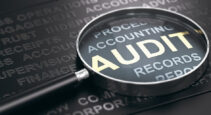Financial Management
Quebec unpacks revenue-generating measures
A package of revenue-generating measures in Quebec's 2025-26 budget includes tax increases, added fees, altered tax credit criteria and elimination of some deductions.
Property assessments no bargain in Ontario
Ontario’s outdated property assessments are an added hitch for retail landlords now contemplating vacant anchor spaces in dozens of regional shopping centres throughout the province.
Carbon price refocused on industrial emitters
Cancellation of the consumer carbon price comes with the Canadian government’s affirmation that other incentives for reducing GHG emissions from buildings will remain in place.
Lenders exhibit decarbonization disconnect
Canadian lenders may be reassessing the urgency of decarbonization, but they still express enthusiasm for the sustainable assets and impact investments that appear to be losing cachet in the United States.
Counter tariffs bring procurement complications
Procurement complications have arisen throughout Canada as businesses grapple with a long list of U.S. products now to be subject to a 25 per cent import tax.
Classic portfolio management set for comeback
Retail was the best performing asset type in 2024 for institutional investors represented in the MSCI/REALPAC Canada Property Index, but all property sectors showed year-over-year improvement.
Tariff chill could put CRE investment on ice
Tariff chill pervades the investment climate throughout Canada’s economy this winter, but commercial real estate insiders are tallying some reasons to be optimistic.
Toronto parking review could allay tax exposure
Recommended changes to Toronto's parking regulations could present an opening for some landlords to reduce their exposure to a potential commercial parking levy.
Canada aims to foster decarbonization capital
The Canadian government promotes a standardized approach for categorizing sustainable investment and verifying its credibility for market participants.
Vacant residential land stirs surtax rumblings
The Canadian government is exploring options for a surtax on vacant residential land through a newly launched public consultation, which is open for submissions until December 31, 2024.
Fastidious work lies ahead of AI advancement
Early adopters and enthusiasts in the commercial real estate industry cite AI's possibilities for portfolio management, risk management, valuation and assessing investment performance.
Short-term rental registry stuck in manual
Toronto relies heavily on manual review processes for oversight of approximately 8,400 registrants currently approved to offer short-term rental accommodations in their principal residences.
Ontario retailers ponder alcohol sales viability
Leases and logistics will be major factors in whether Ontario retailers can act on pending flexibility to sell beer, wine, cider and ready-to-drink alcohol-infused beverages in grocery and convenience stores.
A transparent need for data strategies
Based on self-reporting, many of the commercial real estate firms subject to the U.S. Securities and Exchange Commission’s pending climate-related disclosure rules are grappling with how they will comply.
Capital gains tax adjustment unnerves CRE
The jump in the capital gains inclusion rate is expected to have an immediate impact on property sales, while being factored into longer term asset management and investment decisions.
Decarbonization roadmap navigators in demand
Real estate operators are looking to consultants, turnkey contractors and software for navigational assistance in developing and implementing decarbonization roadmaps.
Alberta to tighten grip on public sector FMs
The Alberta government is moving to tighten its grip on public entities that are defined as “creatures of the province,” yet have conventionally had leeway to seek and accept direct federal investment.

























